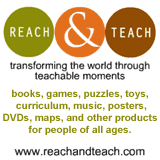This list is based on extensive surveying of students grades 6 through 12 by Search Institute, a non-profit organization based in Minneapolis, Minnesota.
The goal of the study was to identify and quantify both external and internal traits that helped kids succeed and to grow to become community-engaged adults.
(Ref: What Kids Need to Succeed – Bensen, Galbraith, Espeland)
Support
- Family Support – feeling loved and supported in their family
- Positive Family Communication
- Other Adult Relationships
- Caring Neighborhood
- Caring School Climate
- Parent Involvement in Schooling
Empowerment
- Community Values Youth – feeling that adults value young people
- Youth as Resources – having a useful role in the community
- Service to Others – serving/volunteering in the community
- Safety – feeling safe at home, school, and in the neighborhood
Boundaries and Expectations
- Family Boundaries – parents set clear rules and consequences
- School Boundaries – school sets clear rules and consequences
- Neighborhood Boundaries – neighborhood takes responsibility for monitoring young people’s behavior
- Adult Role Models
- Positive Peer Influence – children’s best friends model responsible behavior
- High Expectations – parents and teachers encourage kids to do well
Constructive Use of Time
- Creative Activities – spending 3 hrs/week in music, arts, theater
- Youth Programs – spending 3 hrs/week in sports, clubs, school organizations
- Religious Community – one or more hrs/week in spiritual activities/practice
- Time at Home
Commitment to Learning
- Achievement Motivation – motivated to do well in school
- School Engagement
- Homework
- Bonding to School – kids care about their school
- Reading for Pleasure
Positive Values
- Caring – high value on helping other people
- Equality and Social Justice – high value on promoting equality, reducing hunger and poverty
- Integrity – acting on convictions and beliefs
- Honesty – telling the truth even if it’s not easy
- Responsibility – taking personal responsibility for actions/decisions
- Restraint – abstinence from teen sex, no substance abuse
Social Competencies
- Planning and Decision Making
- Interpersonal Competence – empathy, sensitivity, friendship skills
- Cultural Competence – comfort with people of different cultural, racial, and ethnic backgrounds
- Resistance Skills – can resist negative peer pressure
- Peaceful Conflict Resolution – seeks to resolve conflicts nonviolently
Positive Identity
- Personal Power – feel control over many things happening to them
- Self-Esteem
- Sense of Purpose
- Positive View of Personal Future
Learn more about Developmental Assets…
Filed under: Lists | Tagged: developmental assets, justlists, successful kids | Leave a comment »



